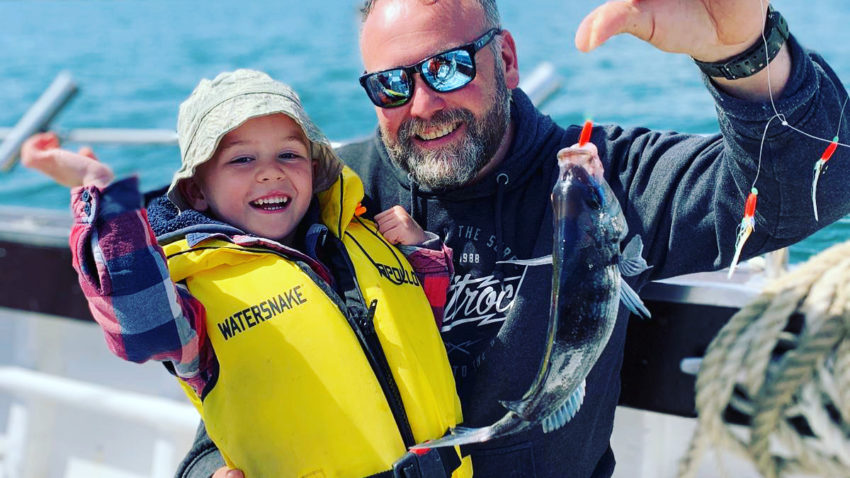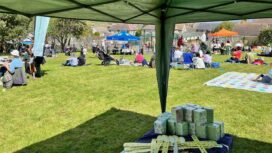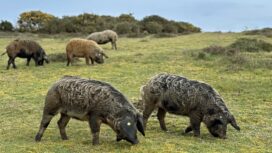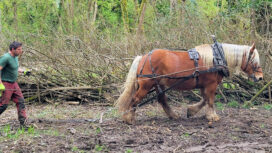Fishing and the wider economy of Swanage could be adversely affected by new marine conservation zones, anglers fear.
Conservationists, on the other hand, argue that new protection measures could save small-scale fishing in the long run.
Both sides agree that the real villains are the super trawlers with nets a mile long that indiscriminately scoop up fish over wide areas of the sea.
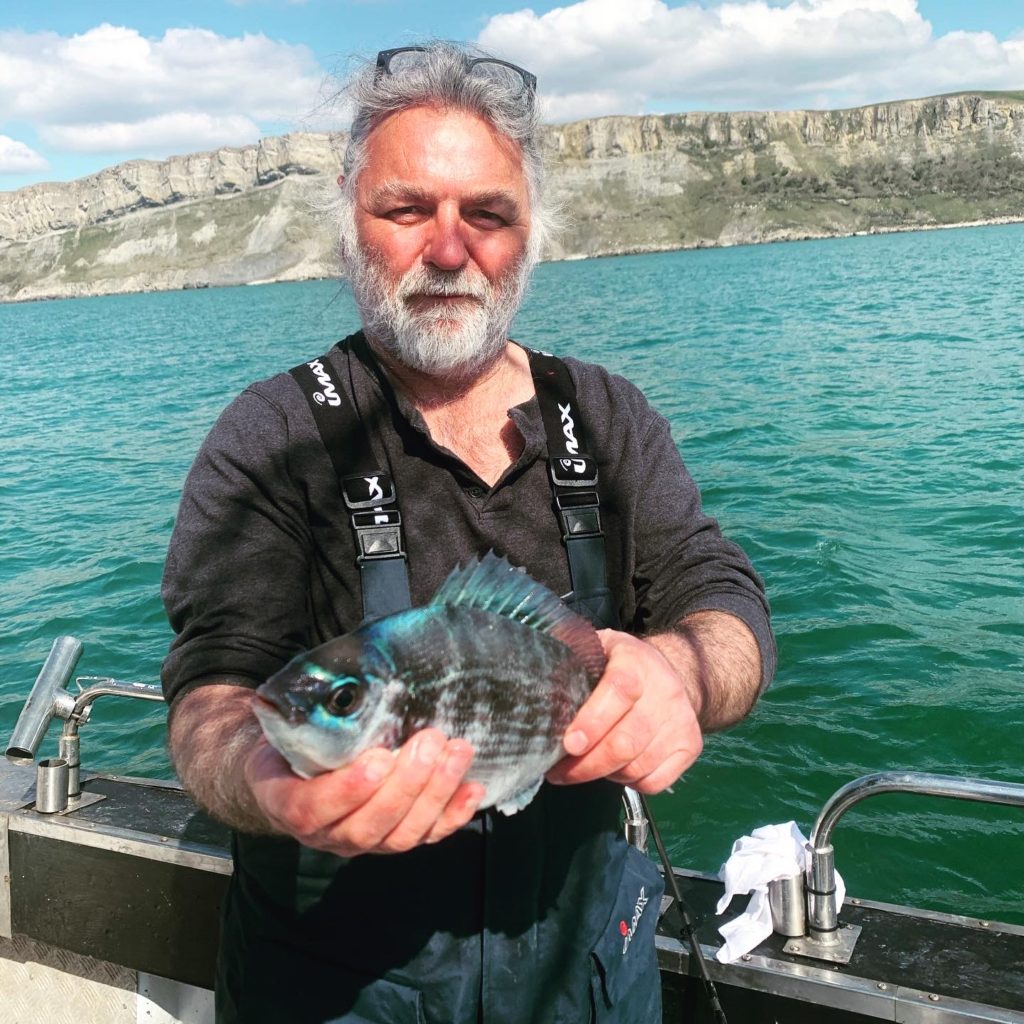
Fish like the black bream are a common catch locally
“It’s a huge issue”
Tom Greasty, owner of Swanage Sea Fishing, is the main provider of angling trips for holidaymakers and enthusiasts out of the bay. He has three pleasure boats and one commercial vessel.
He said:
“It’s a huge issue – not just for Swanage but right along the coast from Poole to Weymouth.
“My family business, that me and my wife have taken twenty years to build up, is at stake.”
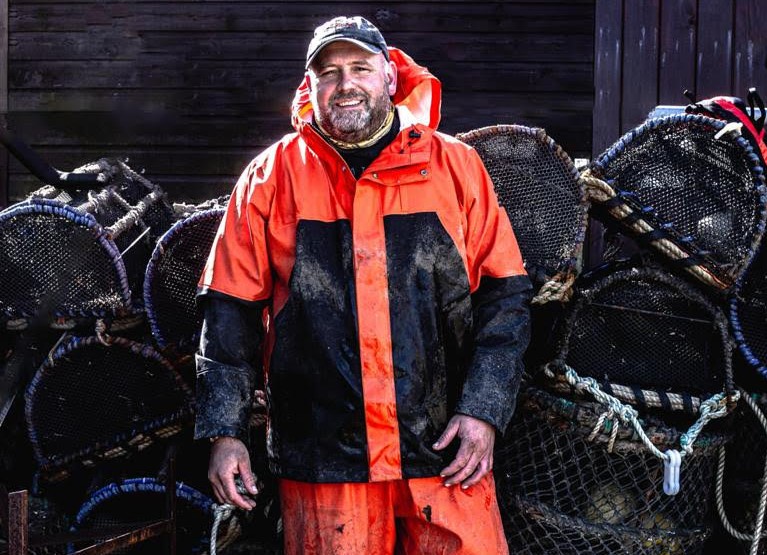
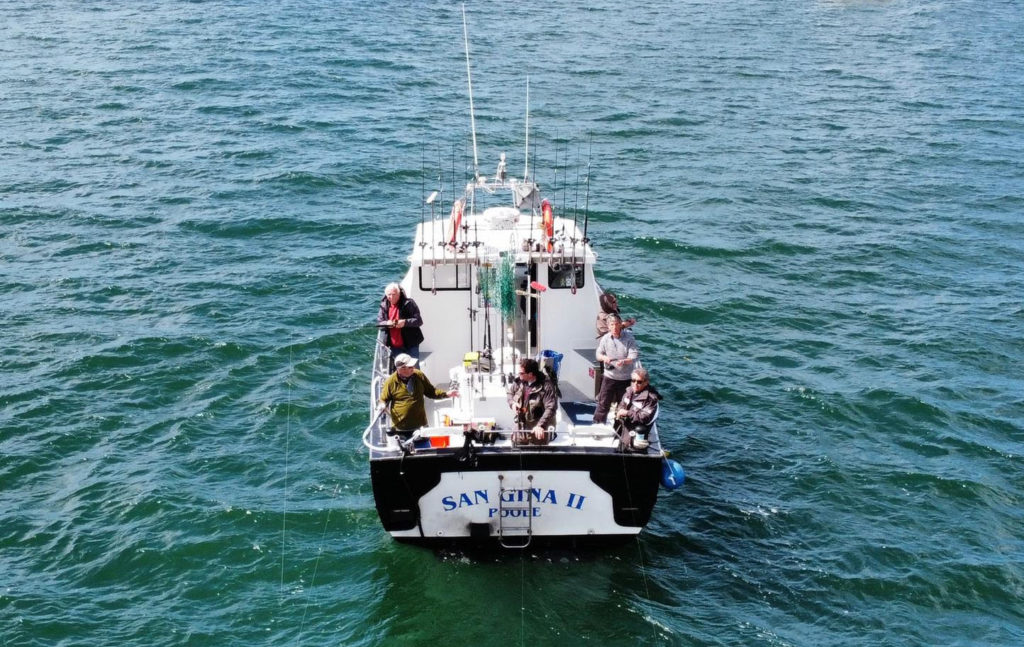
Tom Greasty, who runs boats out of Swanage, says his livelihood is under threat
Conservation zones
New maritime conservation zones were introduced in 2019. The Purbeck coast zone is more than a hundred square miles in size and stretches from Ringstead Bay to Swanage Bay. There’s a smaller one in Studland Bay and several others in the area.
Recently the Marine Management Organisation, a government body, stopped short of a ban on boats anchoring in Studland Bay but introduced a voluntary no anchor zone.
One of the main species that conservationists want to protect is the Black Bream. But this is a sticking point for local fishermen.
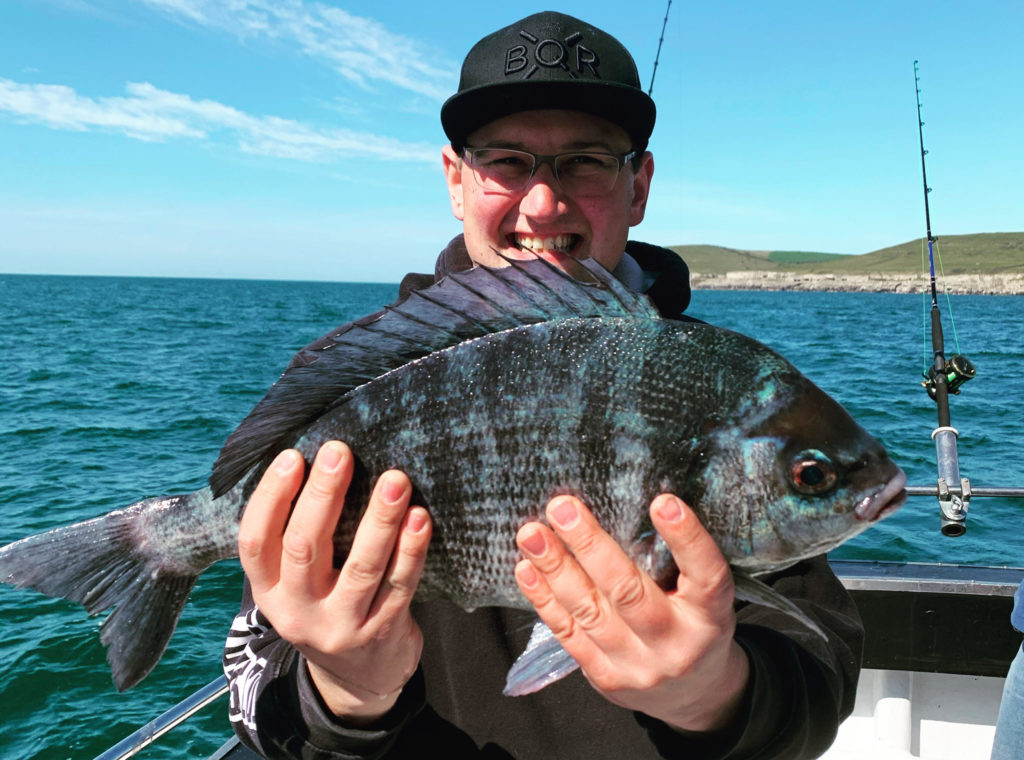
The black bream is protected but anglers claim they are plentiful
“Game over for me”
Tom Greasty said:
“If they stop us fishing for them, it’s game over for me.
“It is literally my bread and butter. There is more bream than there’s ever been and there’s no evidence to say the stock has dropped down.
“If I thought there was an issue with the stocks, I would be the first person to put up my hand and do something about it but there just isn’t.
“If anything, the bream are a nuisance. If you are fishing for other stuff, you sort of, have to fish through them.”
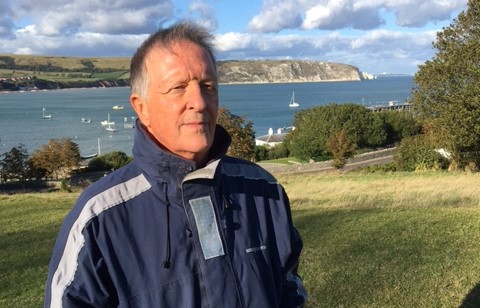
Doug Skinner studied marine biology and campaigns for Greenpeace
“Times when the sea boiled with fish“
Doug Skinner, a speaker for the environmental campaign group Greenpeace, who lives in Swanage, said:
“They think that they won’t be able to fish in these areas but it’s about the bigger picture.
“Along this coast I can remember times when the sea boiled with fish but that’s no longer the case.
“By protecting the fish with these conservation areas, you allow them to grow bigger and increase the number of young they produce. Everything is better because it’s all controlled.”
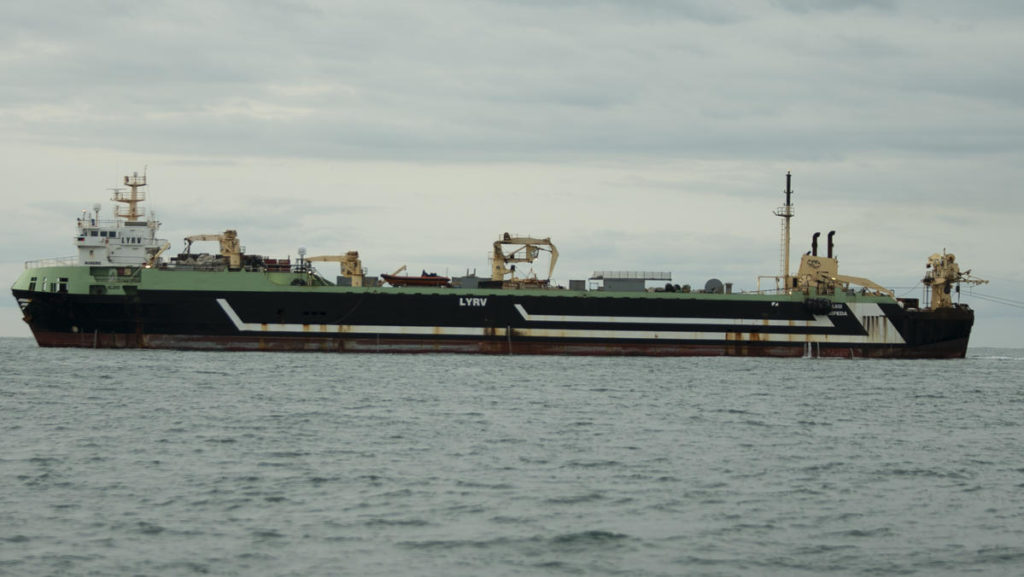
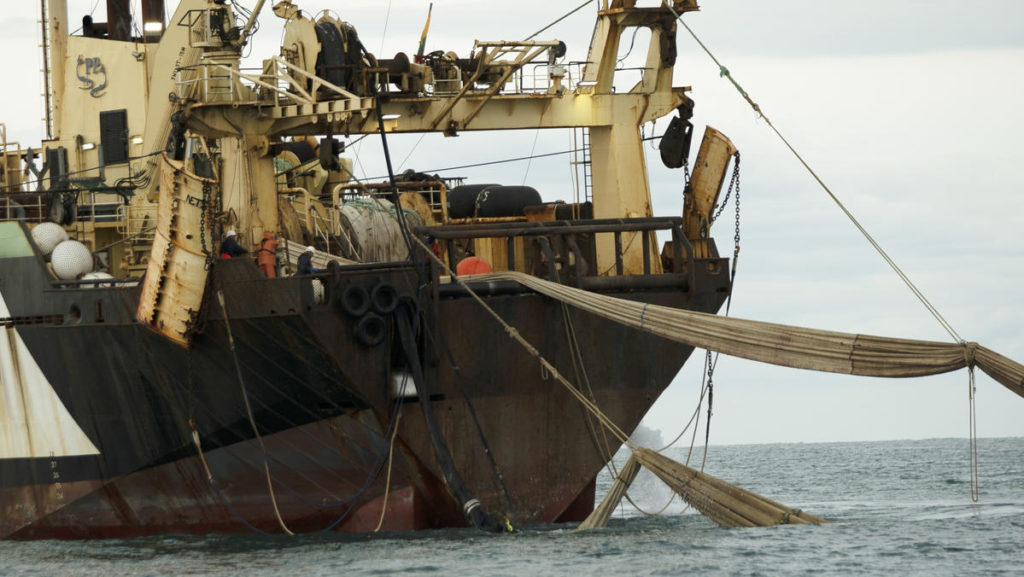
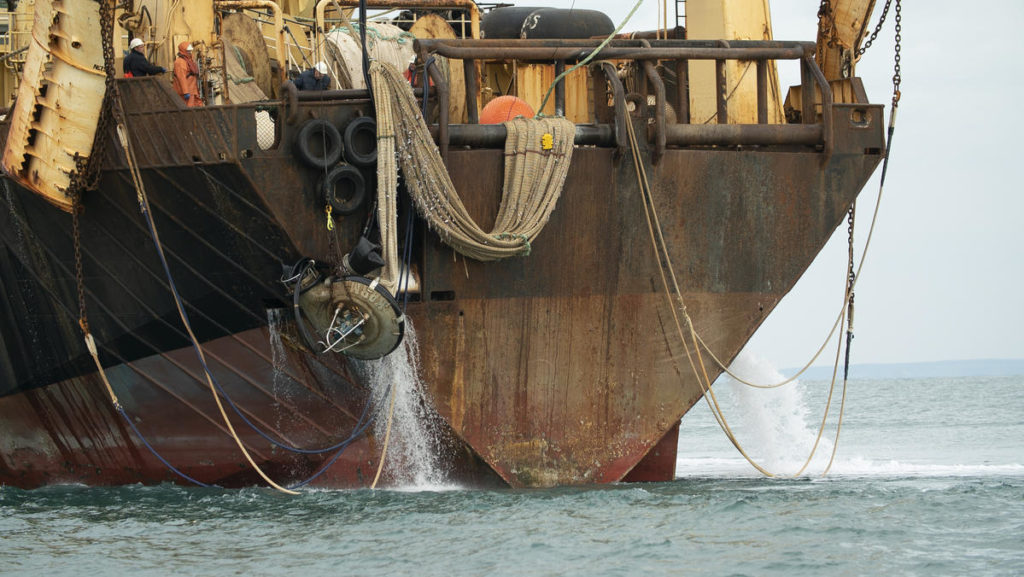
The super trawler Margiris in the English Channel has nets the size of five or six football pitches
“Proecting the fisheries for everybody”
He said the real culprits were the super trawlers like the Margiris which has been seen fishing off the Dorset coast.
Doug said:
“We have to do something about protecting the fisheries for everybody and there may be certain small areas that need to be tweaked.”
The last couple of summers have been hard for traditional fishing trips which are part of the appeal of a holiday in Swanage.
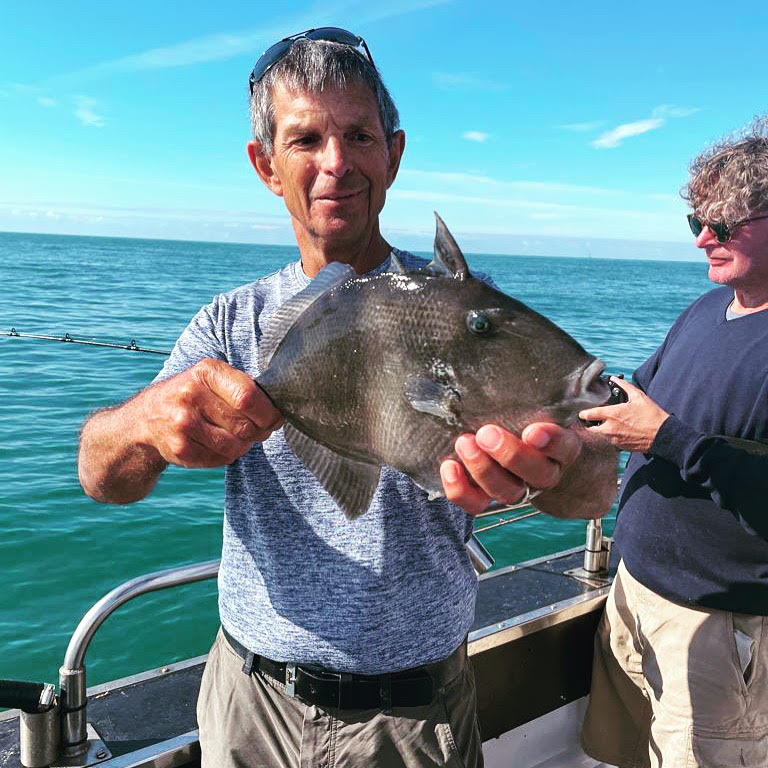
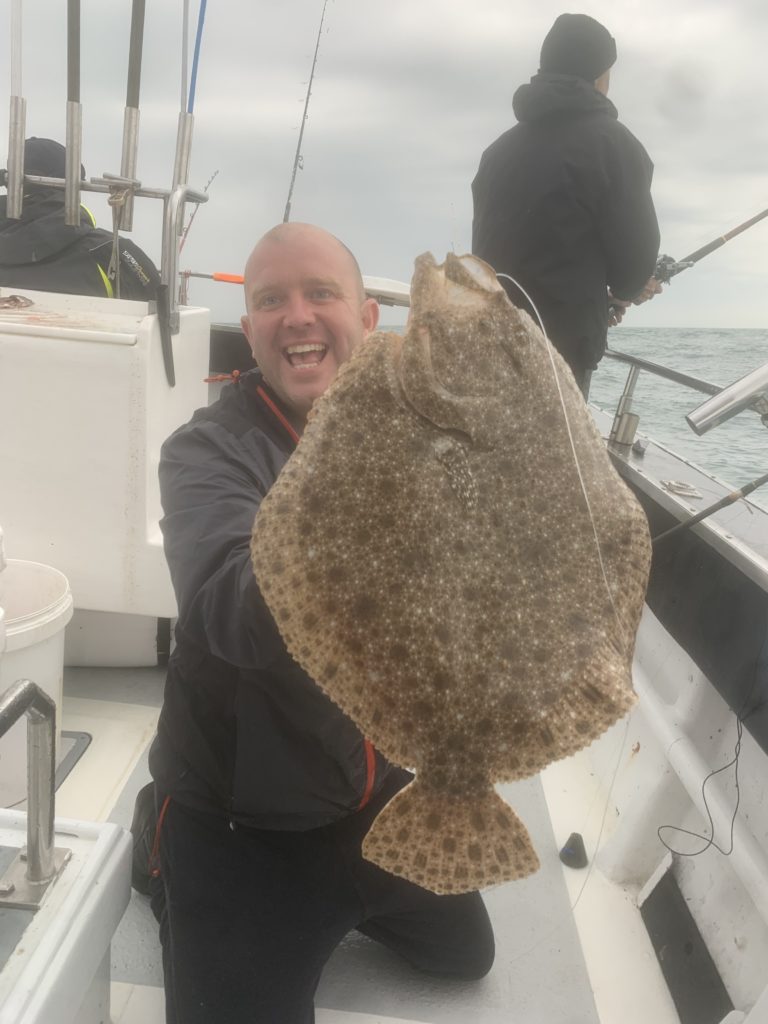
Top: Trigger Fish/ Below: Turbot
Changed over the years
The range of fish has also changed over the years. Mackerel – once the mainstay of local fishing and fond memory of childhood holidays – now arrive much later.
Tom joked:
“It’s as if they know when the school holidays are over!”
But there are new arrivals like the Blue Fin Tuna that moved into the waters of Cornwall and Devon, and last year was spotted off Swanage for the first time.
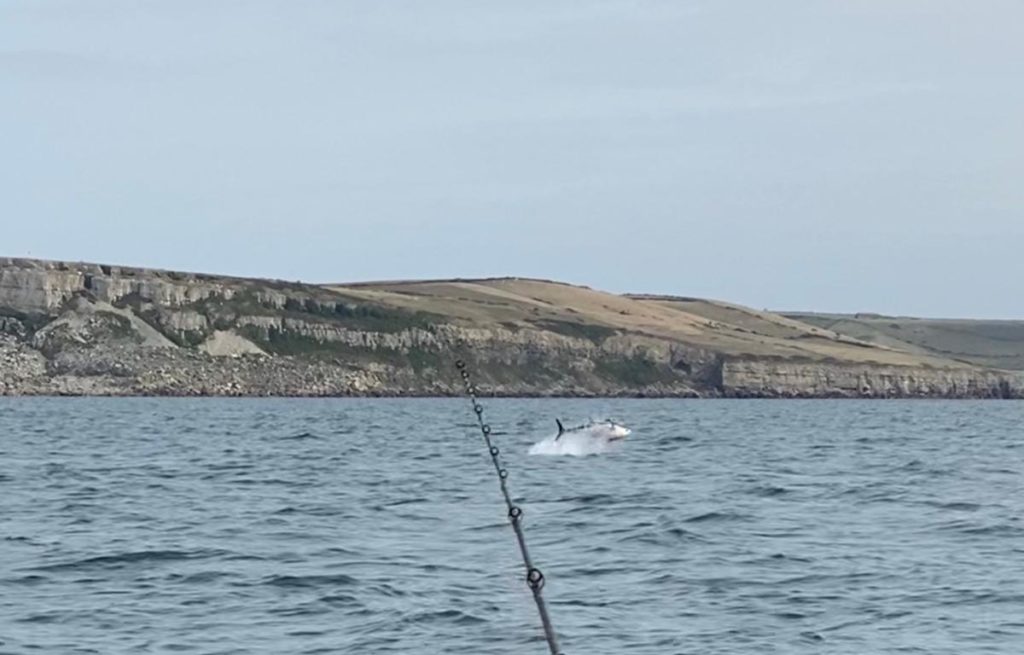
New arrival off the Dorset coast – the protected blue fin tuna
More sharks and dolphins
There have also been more sharks in the last couple of years – the Thresher and Porbeagle – and dolphins: the Bottlenose being joined by the Common dolphin.
This year, two weeks of the key school summer holidays were lost to strong easterly winds, meaning the boats had to be moved to Poole. Covid social distancing meant fewer customers on board, though most seemed happy to pay a little extra to have more space.
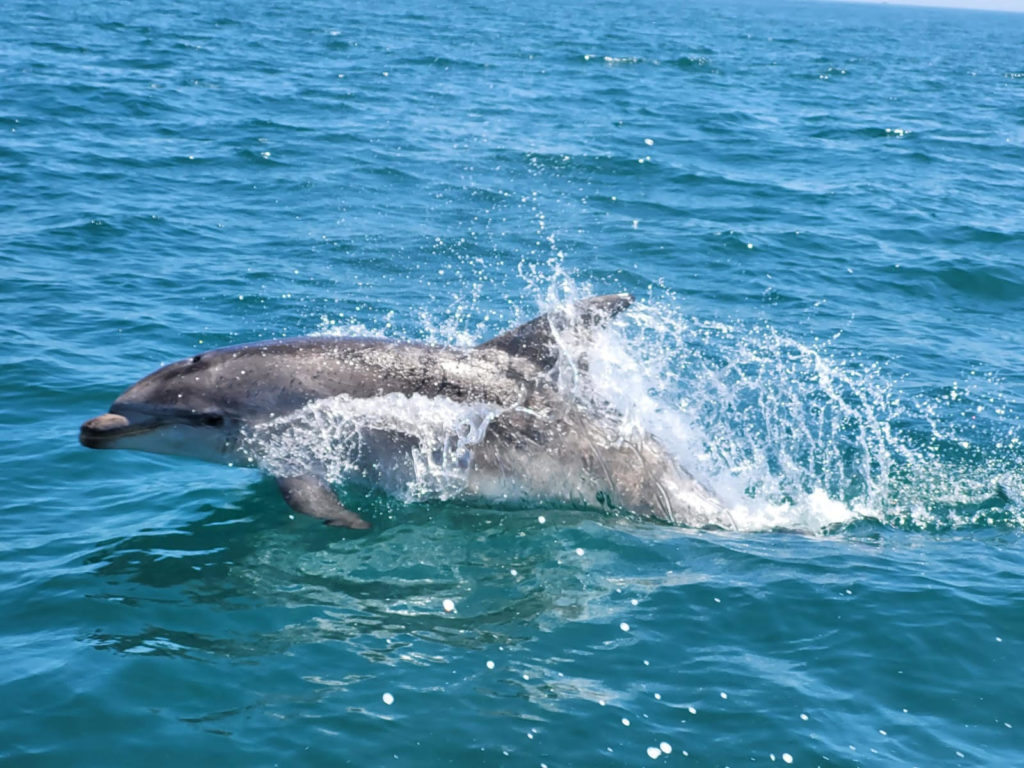
Dolphins are seen in larger numbers
Protecting world’s oceans
Environmentalists eventually want to see a third of the world’s oceans protected. The maritime conservation areas off the Purbeck coast are part of this long-term project.
Doug Skinner highlighted the example of the sea bass which is at the top of the food chain and should be far more abundant off the Swanage coast than it is.
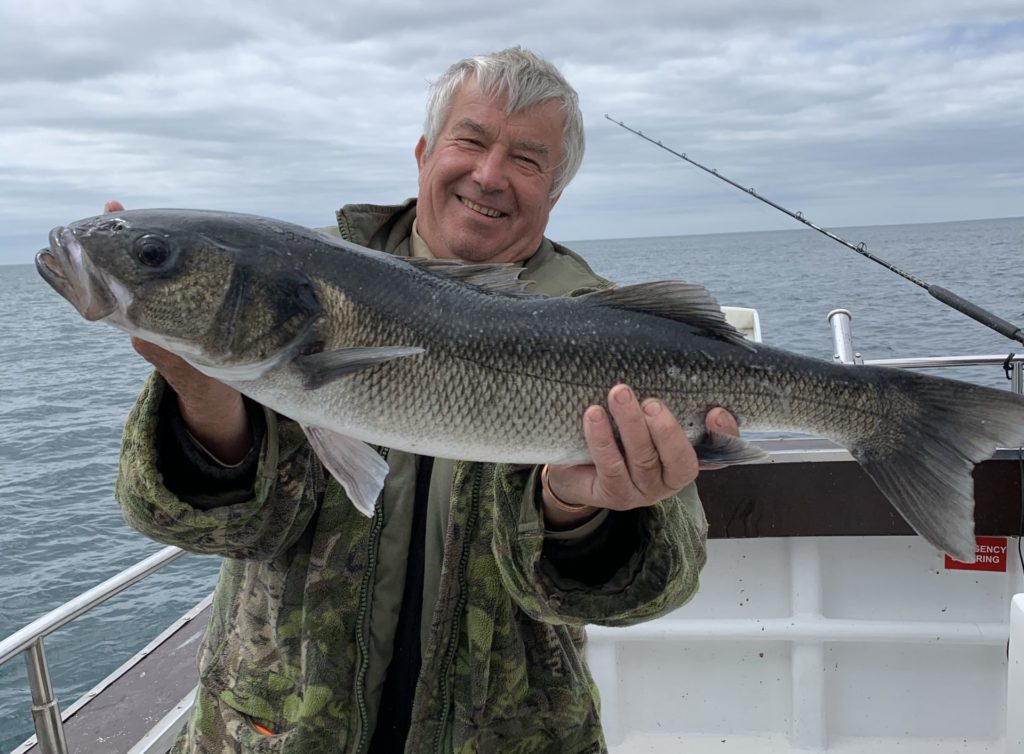
Top of the food chain – the sea bass
“Look at science rather than emotion”
He said:
“If you allow areas where they can recover – so called conservation areas – then the larger fish will grow, and the fecundity goes up exponentially. Fishermen need to look at the science rather than emotion.
“Ultimately, we want to see a whole industry of small fishermen sustainably fishing their local area around the UK.”
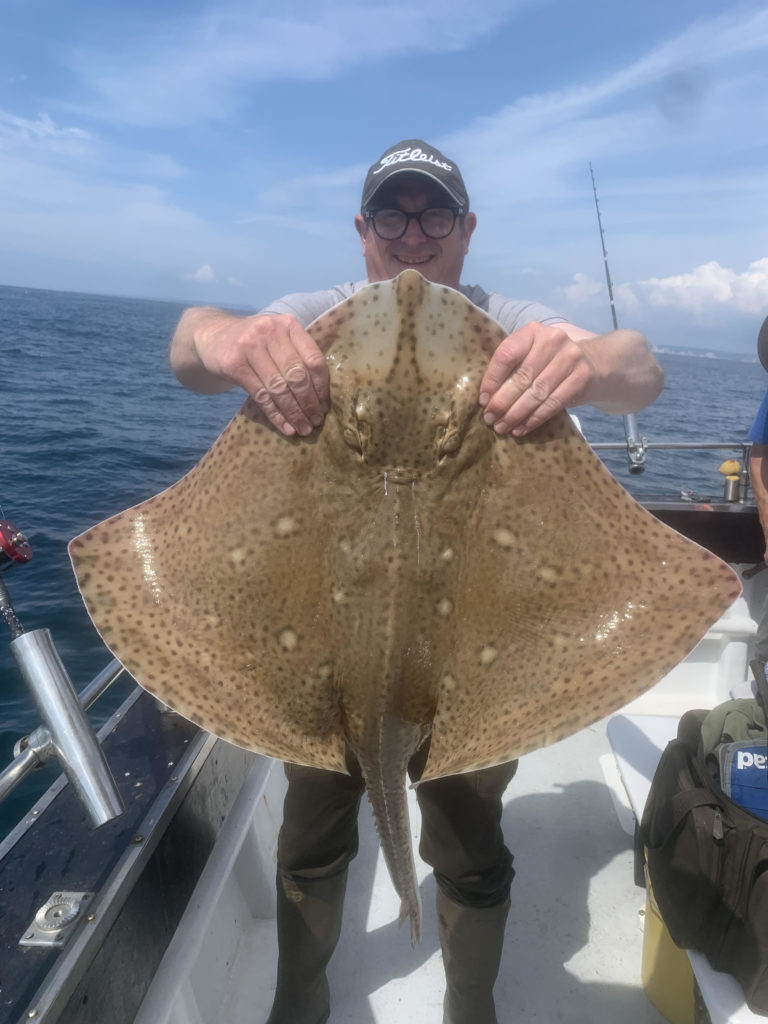
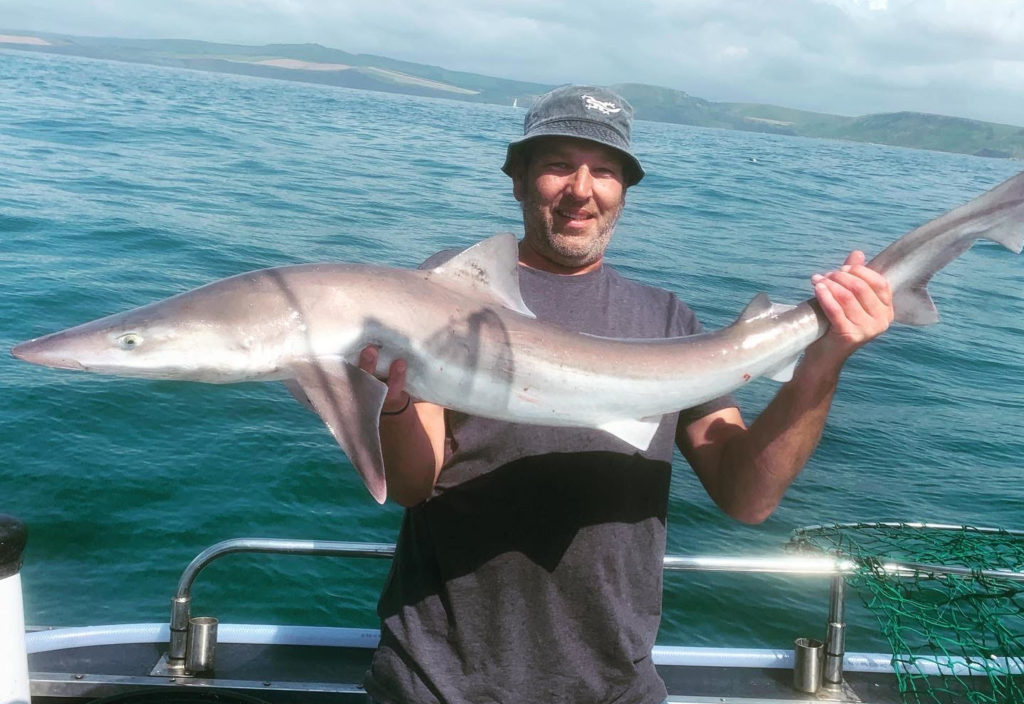
Top: Blonde Ray/ Below: Tope
Doesn’t eat fish!
Tom, meanwhile, says that anglers have changed their attitude in recent years. They ‘fish for the fridge, not the freezer’. He reckons up to 95 percent of what they catch on the trips is now thrown back. He doesn’t even eat fish himself!
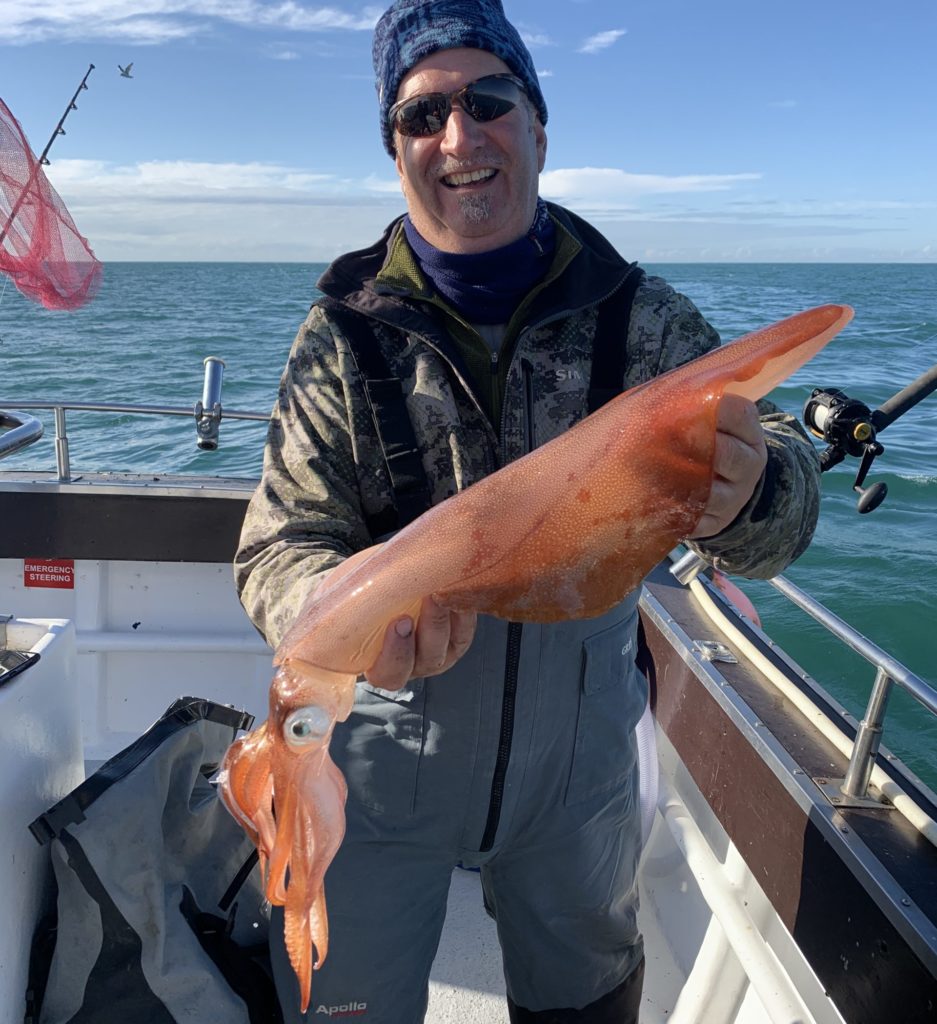
A proud angler show’s off the squid he’s caught
“Implications for the wider economy”
Tom said:
“I am being optimistic that we can work with the conservation people and reach agreement.
“Fishing is a massive thing for the UK and a big part of why visitors come to Swanage.
“If they stop fishing in the Purbeck that has implications for the wider economy. It’s going to put a lot of people out of business.”
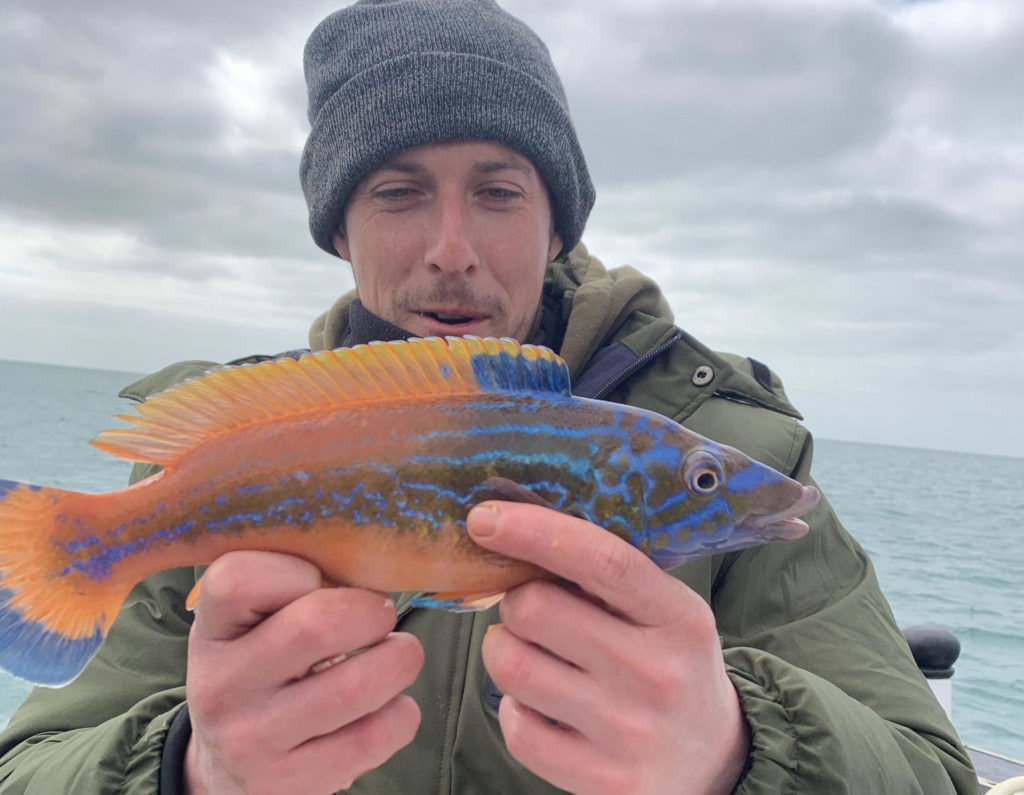
Cuckoo wrasse
Further information
More about fishing and sightseeing trips is on the Swanage Sea Fishing website
